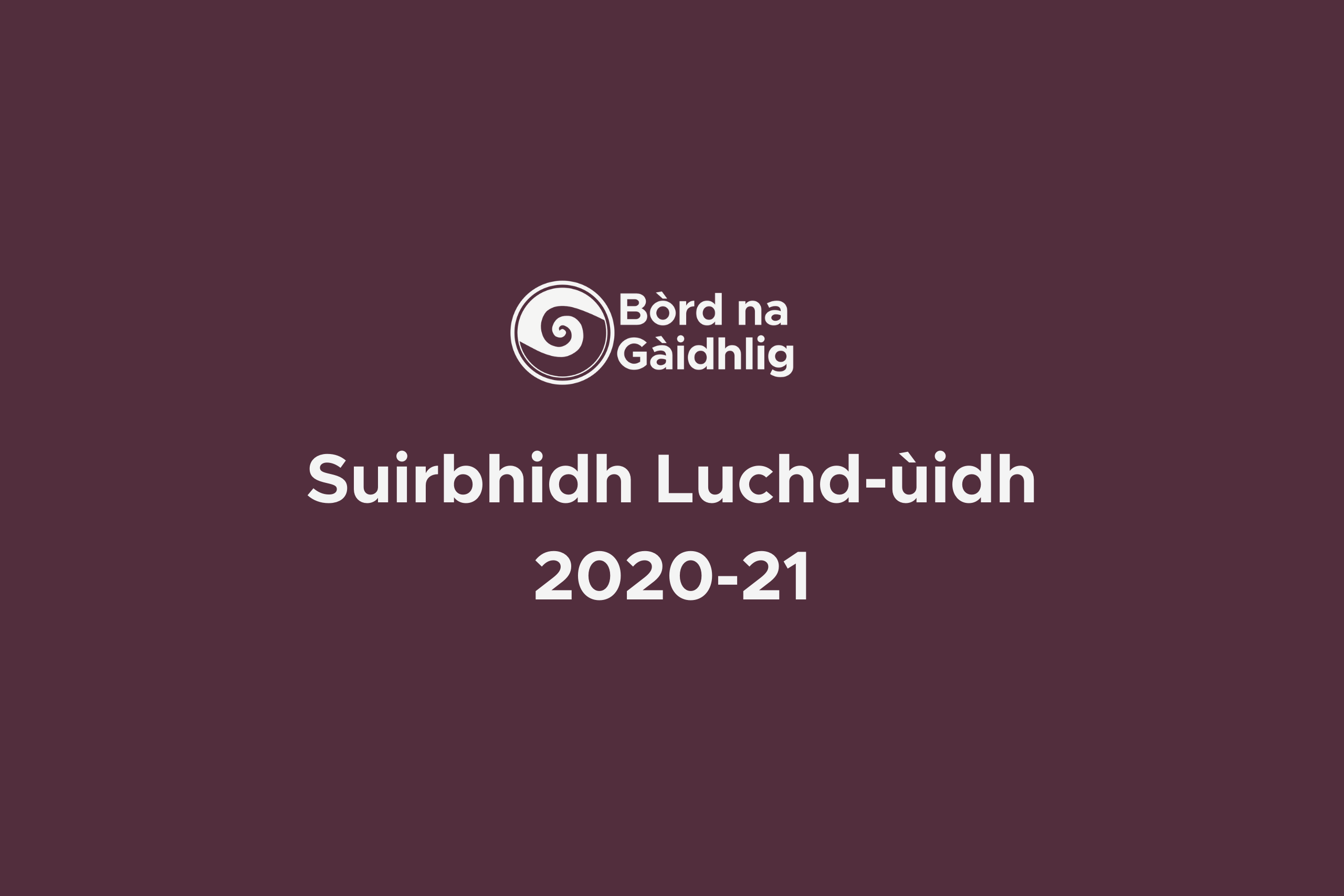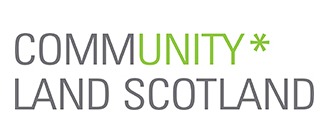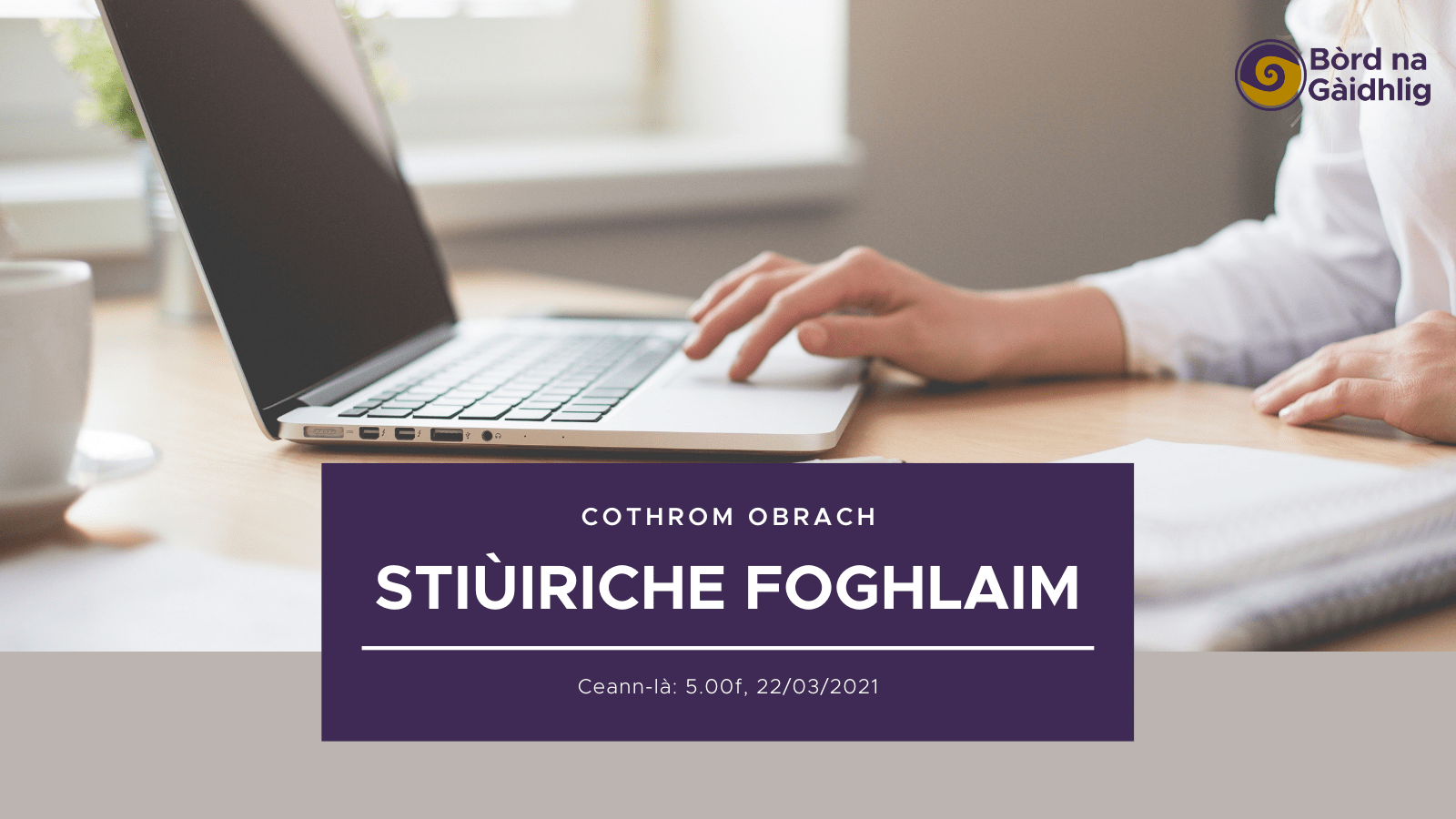Bòrd na Gàidhlig launches consultation on the future of Gaelic development
Bòrd na Gàidhlig is inviting communities to join them in building the next National Gaelic Language Plan as it launches a series of public meetings.
The public body will hold five National Plan sessions throughout June, with the primary aim of gathering further feedback as to how the next National Plan can most effectively support Gaelic development throughout Scotland.
This consultation builds on the questionnaire Bòrd na Gàidhlig (BnG) distributed in December 2020 about initial thoughts on the next National Plan, and presents the findings of a range of conversations with communities over the last year. The next National Plan is due for publication in 2023.
In line with the objectives in the current National Gaelic Language Plan, BnG is looking to ensure that the impact of support for opportunities to use, learn and promote the language is maximised.
Each meeting is focused on a different community to enable more focused discussion. All meetings will follow the same format.
The separate sessions will be held for Gaelic speakers living in the islands and rural areas, for those living in towns and cities, those who engage with the language online, and for young people. There will also be one session held in English. In addition, there will be the option to submit opinions via email as part of the process.
Each meeting will be introduced by BnG’s Cathraiche, Mary MacInnes, before a presentation from Director of Language Planning and Community Developments, Daibhidh Boag.
The presentation will focus on the key points from a range of consultations and discussions held over the past year, including: Bòrd na Gàidhlig’s questionnaire on the National Plan, Young People Survey, and its Strategic Funding Consultation, as well and community conversations on Gaelic usage in the islands, facilitated by Allasdair Allan and other MSPs, plus a series of conversations led by Deputy First Minister, John Swinney MSP.
Mary MacInnes, Bòrd na Gàidhlig’s Cathriache, said: “Safeguarding the future of Gaelic is vital to sustaining a massive part of Scotland’s heritage and increasing its presence in Scotland. Bòrd na Gàidhlig works constantly to place the language at the top of the agenda to ensure that it is provided with a strong and sustainable platform to survive and thrive in the 21st century.
“It is essential that more people recognise the importance of the language within communities the length and breadth of the country. These sessions are designed to give members of the public the opportunity to provide feedback and ideas, so that their views can be incorporated into shaping the next National Gaelic Language plan.”
The meetings will take place on: June 7 – island and rural communities; June 9 – young people (4.30-6pm); June 10 – those living in towns and cities; June 14 – online community; June 17 – English language session. All meetings take place between 7-8pm, unless otherwise specified.
Update: Registration for these meetings has closed.




